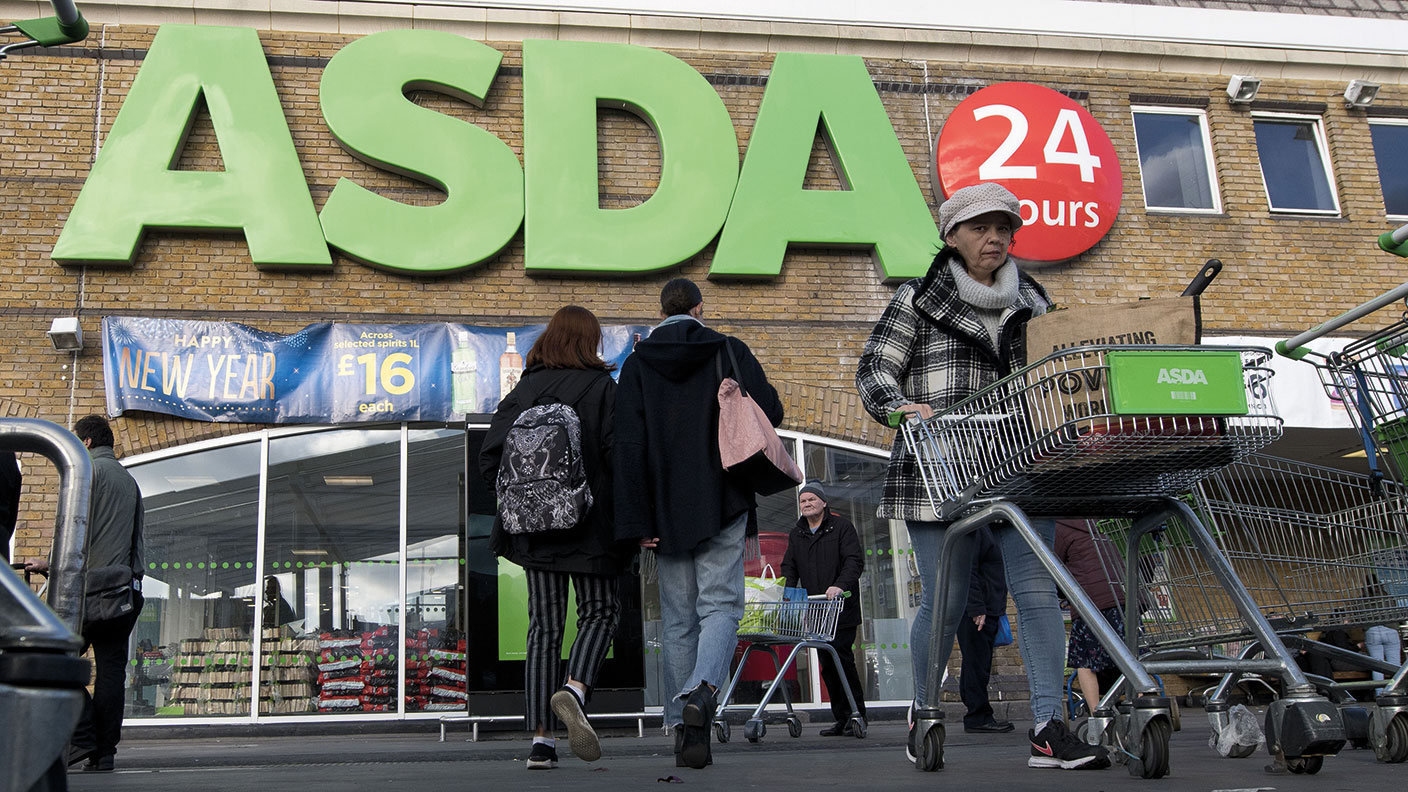Asda comes back to Britain
Walmart is to sell supermarket chain Asda to billionaires Moshin and Zuber Issa and the private-equity firm TDR Capital.


Get the latest financial news, insights and expert analysis from our award-winning MoneyWeek team, to help you understand what really matters when it comes to your finances.
You are now subscribed
Your newsletter sign-up was successful
Want to add more newsletters?
Walmart once tried – and failed – to merge Asda, its UK operation, with Sainsbury’s. Now it has agreed to sell the supermarket chain to “two billionaire brothers from Blackburn”, Moshin and Zuber Issa, and the private-equity firm TDR Capital, says Zoe Wood in The Guardian.
The deal, which will see Walmart retain a minority stake in the company, as well as a seat on the board, values Asda at around £6.8bn, only “slightly more” than the £6.7bn that Walmart paid in 1999. This reflects the fact that, even with Walmart’s “financial power”, Asda has “struggled” in the “ferociously competitive” grocery market.
The “self-made” Issas are touted by Walmart as the “secret sauce” of the deal, says Deirdre Hipwell on Bloomberg. This is because Walmart hopes that the brothers can use their ownership of EG Group, which operates food outlets and stores on over 6,000 different sites, including petrol stations and highway service areas, to help Asda break into the “lucrative convenience-store market”. However, Britain’s convenience-store arena is “crowded with competitors”, with many of the best sites already “snapped up”, while there is also evidence that the rapid growth “may be poised to cool”. Covid-19 has also moved a lot of food shopping online.
Try 6 free issues of MoneyWeek today
Get unparalleled financial insight, analysis and expert opinion you can profit from.

Sign up to Money Morning
Don't miss the latest investment and personal finances news, market analysis, plus money-saving tips with our free twice-daily newsletter
Don't miss the latest investment and personal finances news, market analysis, plus money-saving tips with our free twice-daily newsletter
The government has welcomed Asda returning to British ownership, says Christopher Williams in The Sunday Telegraph. But the cost of the deal is fuelled by £4bn of junk bonds and leveraged loans, so the Exchequer will be “out of pocket for some time”. The cost of the borrowing will be offset against Asda’s profits.
Get the latest financial news, insights and expert analysis from our award-winning MoneyWeek team, to help you understand what really matters when it comes to your finances.

-
 Student loans debate: should you fund your child through university?
Student loans debate: should you fund your child through university?Graduates are complaining about their levels of student debt so should wealthy parents be helping them avoid student loans?
-
 Review: Pierre & Vacances – affordable luxury in iconic Flaine
Review: Pierre & Vacances – affordable luxury in iconic FlaineSnow-sure and steeped in rich architectural heritage, Flaine is a unique ski resort which offers something for all of the family.
-
 8 of the best properties for sale with minstrels’ galleries
8 of the best properties for sale with minstrels’ galleriesThe best properties for sale with minstrels’ galleries – from a 15th-century house in Kent, to a four-storey house in Hampstead, comprising part of a converted, Grade II-listed former library
-
 The rare books which are selling for thousands
The rare books which are selling for thousandsRare books have been given a boost by the film Wuthering Heights. So how much are they really selling for?
-
 How to invest as the shine wears off consumer brands
How to invest as the shine wears off consumer brandsConsumer brands no longer impress with their labels. Customers just want what works at a bargain price. That’s a problem for the industry giants, says Jamie Ward
-
 A niche way to diversify your exposure to the AI boom
A niche way to diversify your exposure to the AI boomThe AI boom is still dominating markets, but specialist strategies can help diversify your risks
-
 New PM Sanae Takaichi has a mandate and a plan to boost Japan's economy
New PM Sanae Takaichi has a mandate and a plan to boost Japan's economyOpinion Markets applauded new prime minister Sanae Takaichi’s victory – and Japan's economy and stockmarket have further to climb, says Merryn Somerset Webb
-
 Early signs of the AI apocalypse?
Early signs of the AI apocalypse?Uncertainty is rife as investors question what the impact of AI will be.
-
 8 of the best properties for sale with beautiful kitchens
8 of the best properties for sale with beautiful kitchensThe best properties for sale with beautiful kitchens – from a Modernist house moments from the River Thames in Chiswick, to a 19th-century Italian house in Florence
-
 Three key winners from the AI boom and beyond
Three key winners from the AI boom and beyondJames Harries of the Trojan Global Income Fund picks three promising stocks that transcend the hype of the AI boom